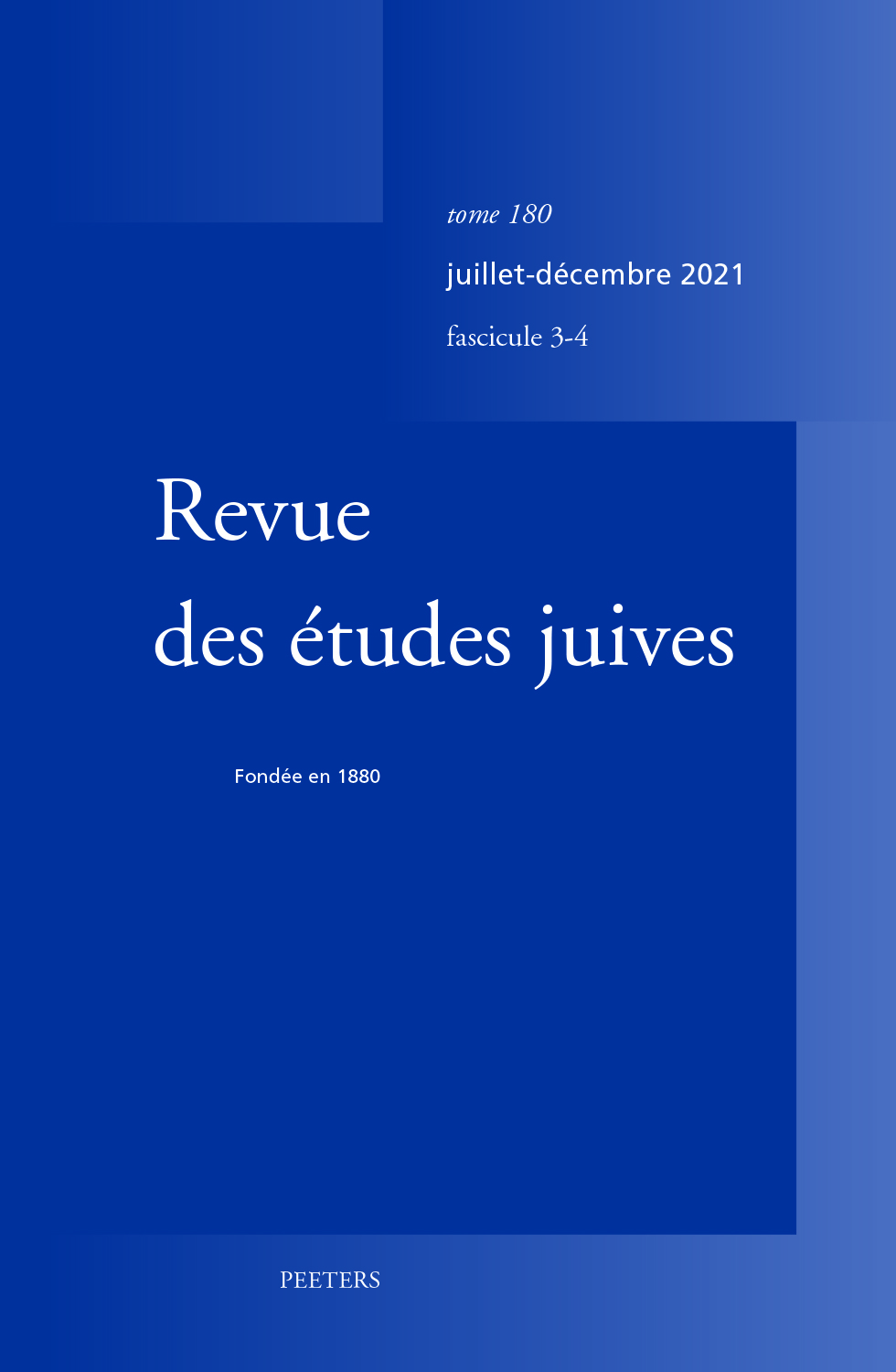 previous article in this issue previous article in this issue | next article in this issue  |

Preview first page |
Document Details : Title: Bernard Lazare (1865-1903) et le renouveau des études juives en France Author(s): WEILL, Georges Journal: Revue des Études Juives Volume: 176 Issue: 3-4 Date: juillet-décembre 2017 Pages: 403-442 DOI: 10.2143/REJ.176.3.3268998 Abstract : Bernard Lazare, poète et journaliste, est surtout célèbre pour son rôle dans l’Affaire Dreyfus. L’examen de ses archives, conservées par la Bibliothèque de l’Alliance israélite universelle à Paris, pourrait lui donner aussi une place dans le cadre du renouveau des études juives en France à la fin du XIXe siècle. Cet article décrit les étapes de son éducation juive et universitaire, d’abord au cours de sa jeunesse nîmoise, puis lors de ses premières années à Paris, pendant lesquelles il a entretenu d’étroites relations avec plusieurs brillants élèves de l’École des chartes, devenus ses amis. On retrouve aussi dans ses notes manuscrites l’influence de l’enseignement qu’il a suivi à l’École pratique des hautes études auprès de plusieurs maîtres prestigieux. À l’aide de son livre sur l’antisémitisme et d’exemples choisis parmi des centaines de notes sur des morceaux de papier, il est possible d’identifier ses sources, de reconstituer ses projets de recherche et décrire sa méthode de travail. Néanmoins, on peut se demander si cette oeuvre inachevée consacrée à l’histoire des Juifs à travers les siècles permet de décerner à cet écrivain aux multiples talents la qualité d’un véritable savant. The famous French poet and journalist Bernard Lazare is mostly known as one of the heroes of the Dreyfus Affair. A new study of his archives kept at the Library of the Alliance israélite universelle in Paris may help to reconsider his position towards the renewal of the French school of Jewish Studies at the end of the 19th century. This contribution retraces the steps of his Jewish education during his youth in Nîmes and his academic background at the time of his early years in Paris, including his friendship with some of the most outstanding students of the École des chartes. One might also find in his manuscript work the influences of the high quality education he received from some of the most prestigious teachers of the École pratique des hautes études. With the help of the footnotes of his book on the anti-Semitism and some examples chosen among a thousand scrapes of papers, it is possible to determine his sources, to restore his research projects and to describe his working method. However, one may wonder whether this unfinished work devoted to the history of the Jews throughout the centuries could be enough to add the quality of a real scholar to this multi-talented writer. |
|


